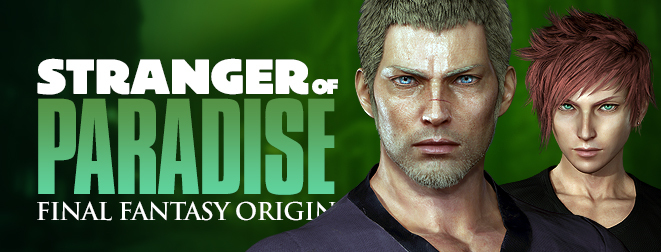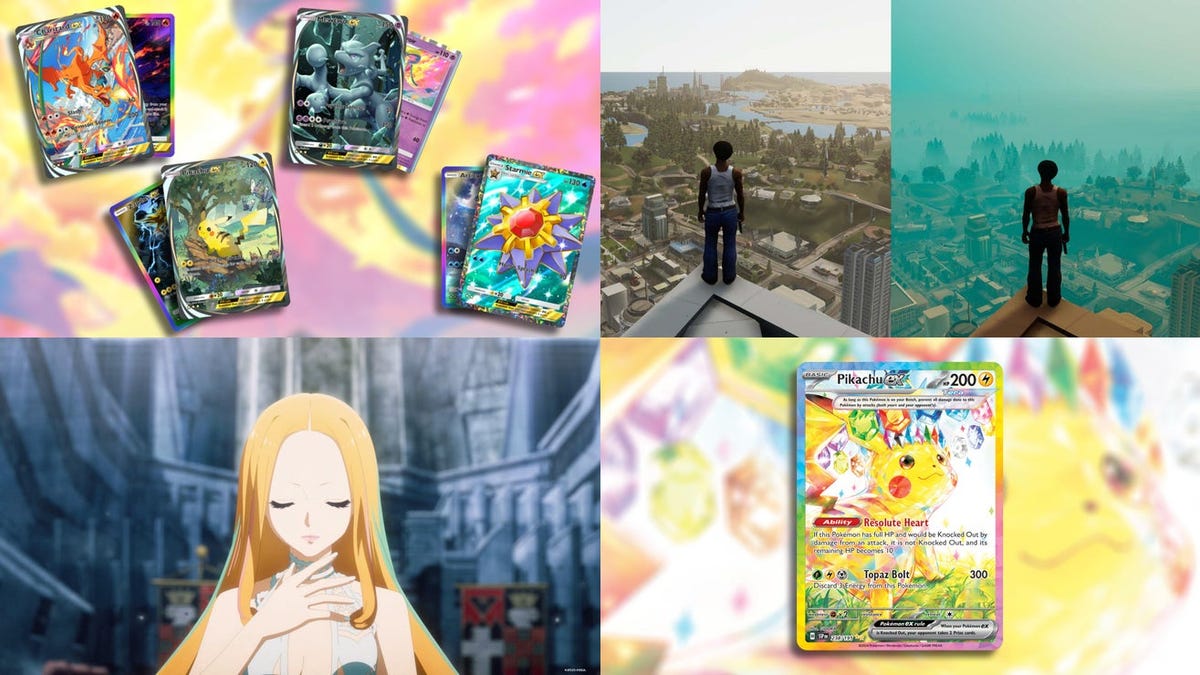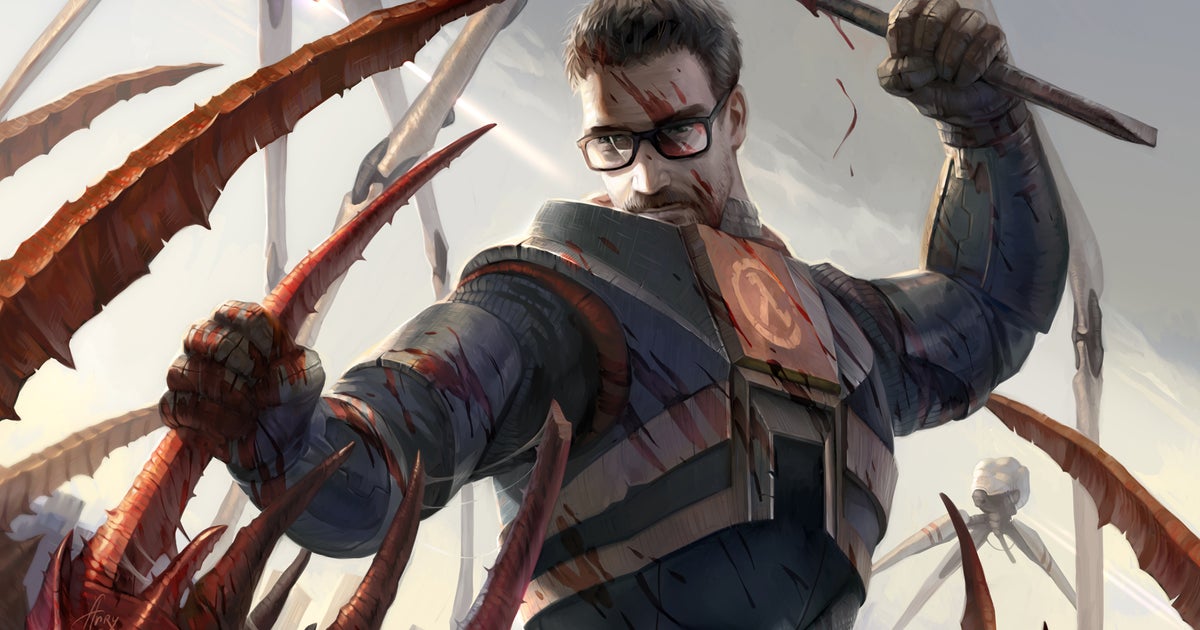After the release of The Nioh Collection on PlayStation 5, the Team Ninja team left the franchise to focus on other projects. Anyone who’s played Nioh 2 long enough will surely have taken this as a good sign, as the series needed a refresher on ideas. With support from Square Enix, the team decided to wrap its tightly woven corset around the magical world of Final Fantasy, creating a sort of “walk-through Final Fantasy Nioh.” It may not sound bad at first, but you have to approach it carefully.
With Stranger of Paradise: Final Fantasy Origin, Team Ninja expands on the first Final Fantasy, released in 1987, with a much more layered story. If you’re interested in learning more about the beginning of the long-running JRPG series, this adventure will give you several much deeper perspectives on some of the original’s underlying themes and characters. However, this requires you to play until the story is solved, and that’s not exactly an easy task due to several factors. The first, of course, is Nioh’s challenging gameplay that requires quick reflexes to survive the usual spikes in difficulty. The second obstacle is precisely its grueling story, confusing and told with flat characters, which hardly makes any sense until the end.
Advertising:
The narrative spends a lot of time and energy preparing players for a big twist, one that pulls through the team with impact but requires too much overall. The big problem are the careless characters who don’t question their one-dimensionality, but rather celebrate it provocatively, which makes them quite difficult. Most of the characters in this world are pale stickers, but the leader of this shadowy troop is in a league of his own. Jack is a hate-driven soldier who hunts a creature called Chaos. What this short-sighted git says throughout the game is absolutely unbearable, and his harshness is why the story doesn’t materialize, you could say he withholds any kind of disclosure with a vengeance.
The fact that we get to know him and the other party members better as the game progresses, and understand why they behave the way they do, goes some way towards compensating for the time we get to spend with them. In the end, however, your connection to the original game will determine how much you take away from all of this. Only in the last few missions (after about 20-30 hours) does the story pick up speed and then you’ve almost reached the epilogue. I’m really surprised that the game manages to tell anything at all reasonably coherently, because most of the time the story was downright hateful.
Advertising:
Stranger of Paradise: Final Fantasy Origin takes the complex gameplay structure of Nioh and expands on it in specific ways. Enemies not only have a life bar, but also an attitude bar (break bar). Once it’s empty, you can use a move called “Soul Crusher,” which will instantly (and unnecessarily brutally) execute the enemy. Weapons deal varying amounts of damage to Stance, and sometimes you can also use the environment to your advantage to catch enemies off guard.
An interesting addition to the formula is the combo system, which significantly expands the attack repertoire. In practice, it’s rarely used, since most of the time enemies won’t let you initiate long combo attacks. Still, the moves can be used in many different ways, and those that manage to time and hit accurately will feel very powerful. In combat we have three defensive maneuvers available to us: you can deflect most attacks with good timing to parry, some attacks force you to dodge and there is also Herzherz, which allows you to intercept certain attacks from opponents later in your favor.
One of the aspects that Stranger of Paradise: Final Fantasy Origin gives more importance to is the job system, something that is of course reminiscent of Final Fantasy. As you gain experience you can unlock active and passive effects in different talent trees and you want to have as many as possible. Each class determines what weapons you can use, and this in turn determines what skills you have access to. Deciding whether to go into battle with an axe, sword, spear, dagger, or mace isn’t as important as you might think. As a mage, you can bombard enemies with magical attacks, but once your mana supply is depleted, you must switch to melee combat to replenish the energy. Because you can switch between two sets of gear at any time, you have a certain ease to prepare for any situation.
Advertising:
In order to reach new audiences, Team Ninja has set several difficulty levels, which mainly affect the amount of damage. In “Story” you can last much longer in fights and have a chance to block all attacks. In “Action” you have a balanced option that can be challenging with some bosses. If you fail against them, the game will give you some very helpful hints in the text, plus you can change the difficulty at each checkpoint. On Hard, you lose part of your mana bar when you die and must collect it to get the most out of your active skills. After completing the game, another difficulty option will open, but it will only be of interest to the most die-hard Team Ninja fans.
Aside from the difficulty you choose, your gear level will determine how much damage you deal and how much you absorb. During gameplay, gear changes by the minute as Team Ninja inundates players with a barrage of random items that unnecessarily slow the flow of the experience. You can let the game choose the best gear for you, so you don’t have to worry about affinities and bonus effects. Optimizing your team really only makes sense towards the end of the journey, when you’re completing the toughest missions on Chaos difficulty and want to hone your characters. Most players will simply use features like forging to get rid of accumulated junk.
Unlike Nioh, in Stranger of Paradise we are not alone but we are accompanied by two other characters. In combat, your teammates will rarely stand out, although they will sometimes draw the attention of enemies, which is very valuable in a game like this. In multiplayer, which unfortunately lacks crossplay, other players take on the role of your fellow players. These guests can use their own weapons and abilities, and mainly play to earn gear and experience.
The boss fights in Stranger of Paradise: Final Fantasy Origin are by far the highlight, but unfortunately they don’t have the quality that you find in games like Elden Ring & Co. Nioh’s gameplay has been simplified a bit, but neither the generic level architecture nor the normal enemy encounters are really interesting. The world is a complete mess, collecting bits and pieces from different eras and technologies that mostly don’t make any sense at all. Obviously Team Ninja overdid it with the story, so I don’t think even the fans will have much fun with this part. However, if you really like the story of Final Fantasy, you can certainly get something out of it while spending time with Jack.
















